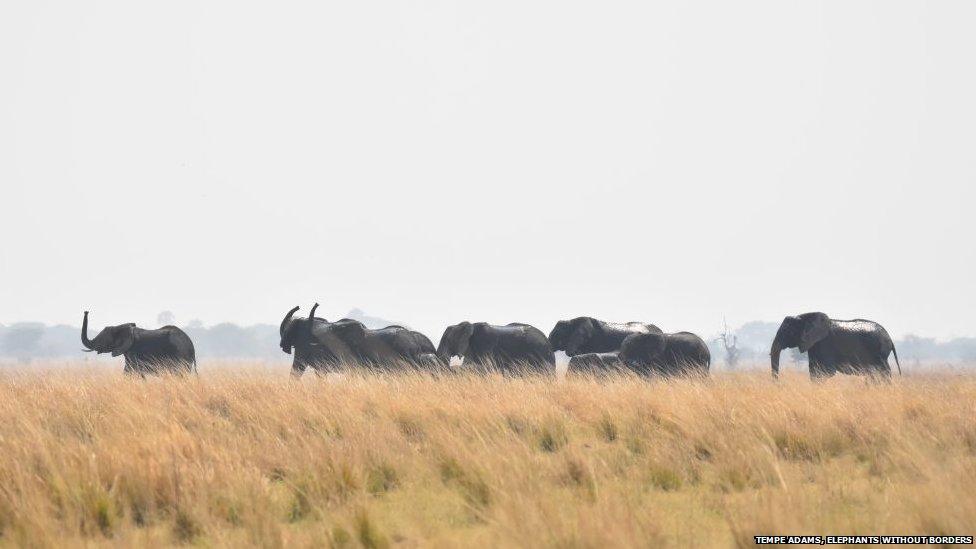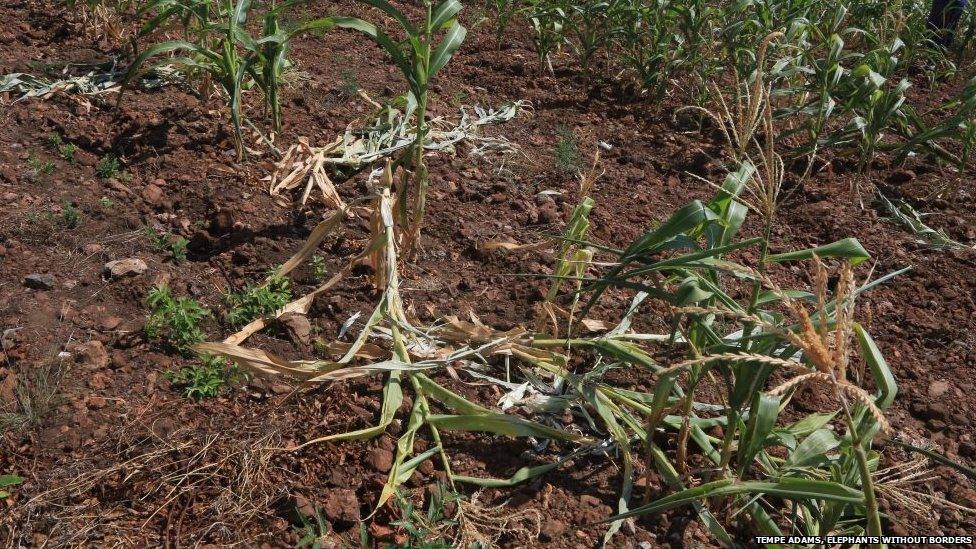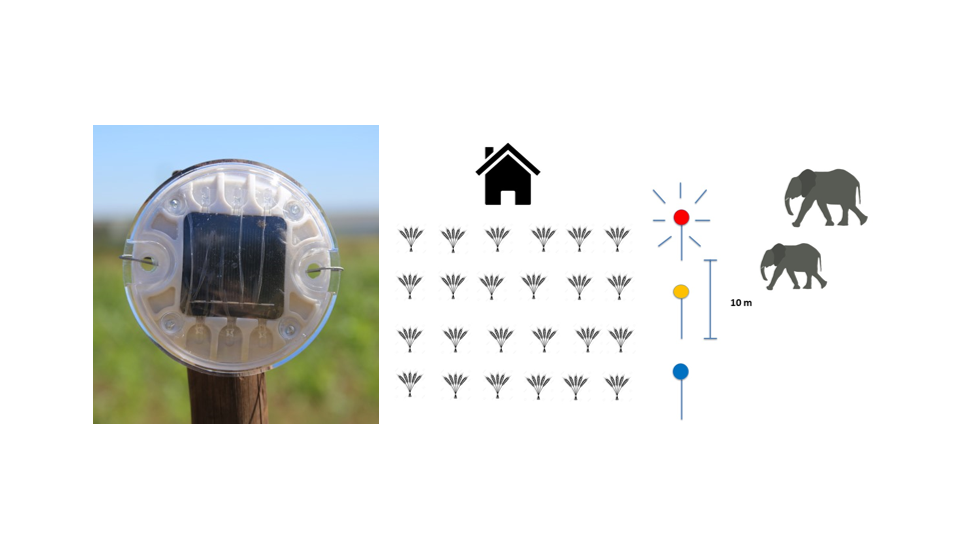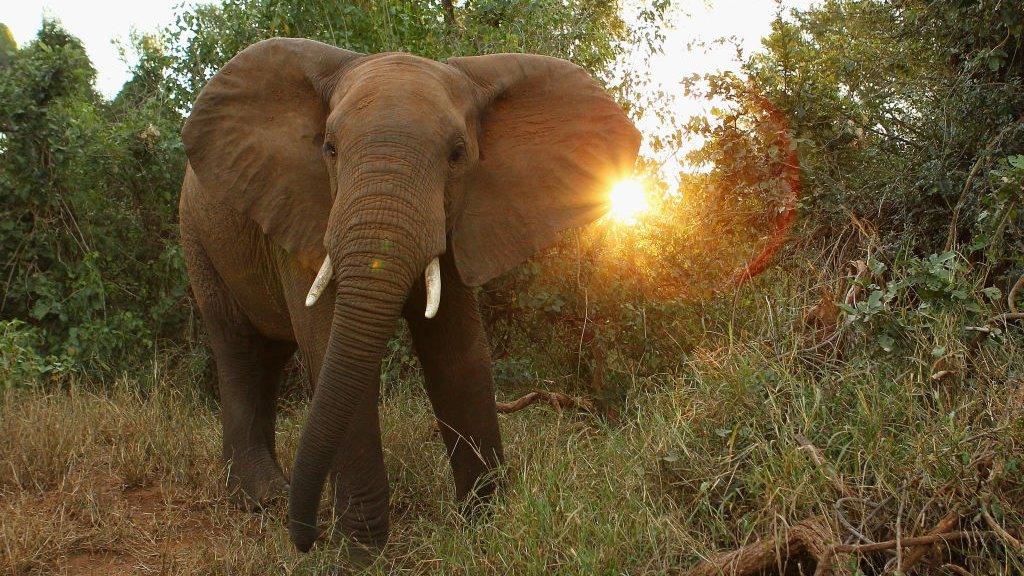Disco lights keep elephants away from farmland in Botswana
- Published

A herd of elephants drinking from a waterhole in Kavimba village, Chobe Enclave, Botswana
Not everyone likes to dance, it seems. Well, that's what scientists in Africa have discovered with a new way to protect crops from wandering elephants - and that's to put on a disco!
OK, so here's the explanation. Scientists from conservationist group Elephants Without Borders realised that elephants are more alarmed by disco lights than by barking dogs. It's after a disco-effect strobe barrier was set up in Botswana to keep elephants away from farmland crops.
Botswana, in Africa, is home to the world's largest elephant population. Lots of rural communities live alongside the banks of the Chobe River with their farming fields close by.
Alongside them live 7,500 elephants who pass through farming areas at night to get to the river to eat and drink. When elephants travel through the area they can cause damage to farmers' property and crops while also scaring people.

Maize that has been damaged by elephants entering a field at night
Because of this, farmers and conservationists have been trying to find new ways to help protect farms from elephants. They want the people living there to be able to live alongside the elephants but also save the crops so the local people can have food and money for their families.
So how does it work?

Solar-powered strobe lights have helped keep elephants off the crops
Well farmers have been coming up with lots of ways to keep elephants away. Things like building fences and using barking dogs, but none of it has worked in the area.
What did work was them quickly flashing torches on and off to scare the animals away. So scientists from Elephants Without Borders got to work to come up with a plan.
They placed colourful solar-powered strobe lights along the side of the field that farmers had previously seen elephants enter.
These lights shot out colourful patterns along the field which were changed every week so it would appear different to elephants passing through the area. If the elephants tried to enter the field from an area where there was no barrier, the lights could easily be moved to the new location.

Farming family with their lights
The lights reduced the amount of damage caused by elephants to the farmers' crops, showing promising results for improving human-elephant coexistence.
Mr Deaconos, a farmer who took part in the experiment, said: "Before I had the lights in my field I had more elephants raid, which made it difficult to have a successful harvest, but in these two seasons with lights I have harvested successfully, we really think the lights work".
- Published31 March 2020

- Published24 June 2020

- Published18 June 2020

